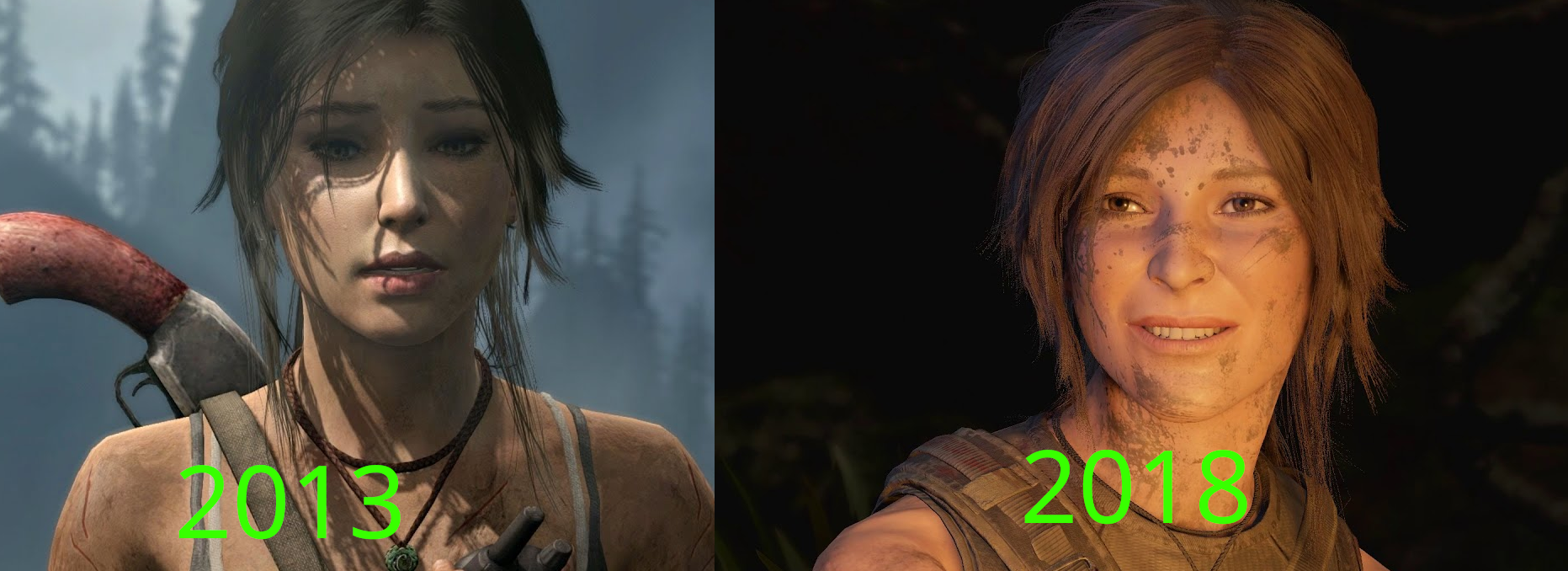I am probably unqualified to speak about this, as I am using an RX 550 low profile and a 768P monitor and almost never play newer titles, but I want to kickstart a discussion, so hear me out.
The push for more realistic graphics was ongoing for longer than most of us can remember, and it made sense for most of its lifespan, as anyone who looked at an older game can confirm - I am a person who has fun making fun of weird looking 3D people.
But I feel games' graphics have reached the point of diminishing returns, AAA studios of today spend millions of dollars just to match the graphics' level of their previous titles - often sacrificing other, more important things on the way, and that people are unnecessarily spending lots of money on electricity consuming heat generating GPUs.
I understand getting an expensive GPU for high resolution, high refresh rate gaming but for 1080P? you shouldn't need anything more powerful than a 1080 TI for years. I think game studios should just slow down their graphical improvements, as they are unnecessary - in my opinion - and just prevent people with lower end systems from enjoying games, and who knows, maybe we will start seeing 50 watt gaming GPUs being viable and capable of running games at medium/high settings, going for cheap - even iGPUs render good graphics now.
TLDR: why pay for more and hurt the environment with higher power consumption when what we have is enough - and possibly overkill.
Note: it would be insane of me to claim that there is not a big difference between both pictures - Tomb Raider 2013 Vs Shadow of the Tomb raider 2018 - but can you really call either of them bad, especially the right picture (5 years old)?
Note 2: this is not much more that a discussion starter that is unlikely to evolve into something larger.

To place another point on this: Control got added interest because their graphics were so good. Part of this was Nvidia providing marketing money that Remedy didn't have before, but I think the graphics themselves helped this game break through the mainstream in a way that their previous games did not. Trailers came out with these incredible graphics, and critics and laygamers alike said "okay I have to check this game out when it releases." Now, that added interest would mean nothing if the game wasn't also a great game beyond the initial impressions, but that was never a problem for Remedy.
For a more recent example, see Baldur's Gate 3. Larian plugged away at the Divinity: OS series for years, and they were well-regarded but i wouldn't say that they quite hit "mainstream". Cue* BG3, where Larian got added money from Wizards of the Coast that they could invest into the graphics. The actual gameplay is not dramatically different from the Divinity games, but the added graphics made people go "this is a Mass Effect" and suddenly this is the biggest game in the world.
We are definitely at a point of diminishing returns with graphics, but it cannot be denied that high-end, expensive graphics drive interest in new game releases, even if those graphics are not cutting-edge.
This comment is 100% on-point, I'm just here to address a pet peeve: Queue = a line that you wait in, like waiting to checkout at the store Cue = something that sets off something else, e.g. "when Jimmy says his line, that's your cue to enter stage left"
So when you said:
What you meant was:
haha thanks, i thought it felt off when i was typing it.
Wizards of the Cost didn't give any funds to BG3, they actually paid for the IP.
"We are definitely at a point of diminishing returns with graphics,"
WTF. How can you look at current NERF developments and honestly say that? This has never been further from the truth in the history of real time graphics. When have we ever been so close to unsupervised, ACTUALLY photo-realistic (in the strict sense) graphics?